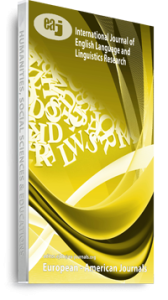Although Browning wrote numerous dramatic monologues, his contemporaries often criticized his works as being too emotional. Browning’s dramatic monologues are characterized by certain identifiable traits. The three requirements of them are: the reader takes the part of the silent listener; the speaker uses a case –making argumentative tone; and thirdly, we complete the dramatic scene from within, by means of inference and imagination .In other words, the first distinguishing characteristic of Browning’s dramatic monologue is the reader who should take the part of the listener and his point of view is always available within the form. In My Last Duchess, the real listener (that is, the target of the argument) is the speaker’s second –self: the Duke of Ferrara reveals his true character to the Count’s representative. Thus, it becomes clear that in this monologue the putative auditor within the poem (the Count’s Representative) is less important than this second – self. The tone of the argument tells us that there is a second point of view present, and it is that which we take. It is this strongly rhetorical language that distinguishes the dramatic monologue from the soliloquy
Keywords: Dramatic Monologue; Intended Speech Acts; Robert Browning; My Last Duchess; Pragmatics; Stylistics

